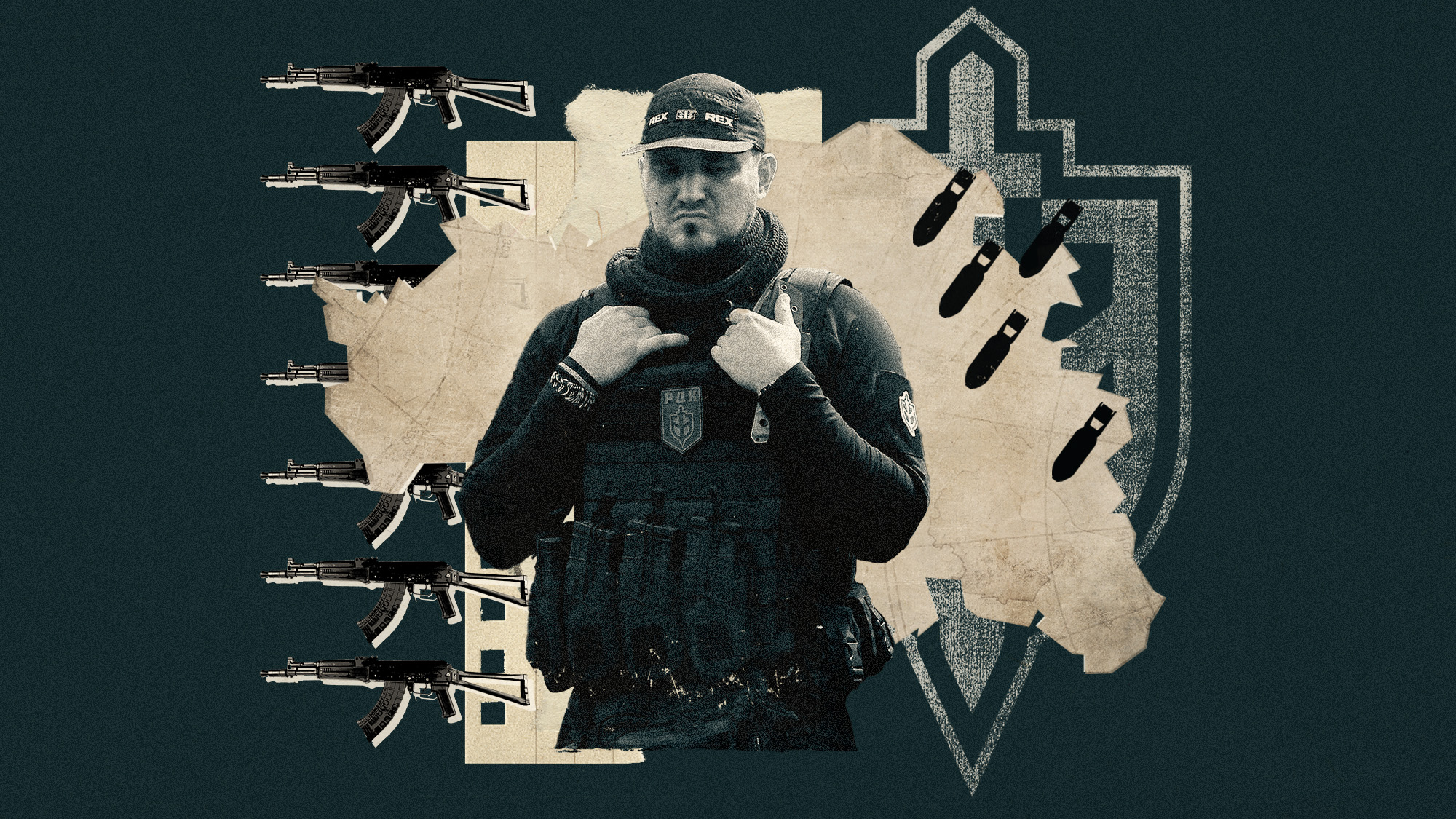Why is Ukraine backing far-right militias in Russia?
The role of the fighters is a 'double-edged sword' for Kyiv, say commentators

A free daily email with the biggest news stories of the day – and the best features from TheWeek.com
You are now subscribed
Your newsletter sign-up was successful
Russian militias fighting for Ukraine are back in the spotlight after launching attacks against the Russian region of Belgorod.
Kyiv regards the militias as allies against Vladimir Putin, but the role of the Ukraine-based groups, made up of Russian volunteer fighters, has proven controversial.
What did the commentators say?
"We are the bad guys, but we fight those who are really bad," Denis Kapustin, who leads the Russian Volunteer Corps, the largest of three anti-Kremlin militias fighting for Ukraine, told Politico.
The Week
Escape your echo chamber. Get the facts behind the news, plus analysis from multiple perspectives.

Sign up for The Week's Free Newsletters
From our morning news briefing to a weekly Good News Newsletter, get the best of The Week delivered directly to your inbox.
From our morning news briefing to a weekly Good News Newsletter, get the best of The Week delivered directly to your inbox.
The tie-up is a "pet project" of Kyrylo Budanov, the head of HUR, Ukraine's military-intelligence agency, who says having the "good warriors" on Kyiv's side is fine, because their enemy's enemy is their friend.
HUR spokesperson Andriy Yusov told the news site that Ukraine "should obviously also assist those Russians who are fighting against the Putin regime to free Russia".
Kapustin has been accused of being a neo-Nazi, but he describes himself as a Russian nationalist and says he is fighting for Ukraine because Russian nationalists should be against Vladimir Putin.
The Russian Volunteer Corps are an "official part" of the Ukrainian army, he said, "but we have serious political ambitions and political agenda". And that agenda is to "march to Moscow and dismantle the Putin regime", which is "obviously in the interests of Ukraine".
A free daily email with the biggest news stories of the day – and the best features from TheWeek.com
Yet his role in the war is a "double-edged sword for Kyiv", said Politico, because the connection is a "godsend" to Russian propagandists. Even some in Ukraine's regular army "frown" on the connection. Moscow is keen to "whitewash" the invasion of Ukraine as an attempt to "de-Nazify" Kyiv, and Russian state media "relish" pointing to Kapustin's origins as a far-right football hooligan as it "bolsters their pretext for the war".
Despite his claims, the militias have "no formal connection" to the Ukrainian government, said The Economist, and that allows Ukrainian officials to distance themselves from the group's operations, "however implausibly".
Yusov told Politico that the militias don't act in Russia on the direct orders of Kyiv, but the outlet said it depends on how you define "under orders".
Andrei Chernak, another spokesperson for HUR, told The Economist that the "existential" danger Ukraine faces means that military intelligence "cannot be too choosy about whom it collaborates with". With survival Ukraine's "only focus", the regime is "prepared to work with everyone".
What next?
As the Belgorod region, which lies on the border with Ukraine, comes under fire 300 to 400 times a month, questions are being asked over how secure they would be from future operations by the Russian militias.
Officials in the region have been "fortifying bus stops" with sandbags and concrete structures, said Meduza. Yet locals "remain unconvinced by their efforts" and many projects that "appear on paper don't seem to exist in real life".
Critics said that more bomb shelters were needed, but the local authorities have neither increased the number of shelters nor ensured that existing ones are open.
Meanwhile, Kapustin told Politico that the militias have freedom of action once across the border and the raids are "closely coordinated with the HUR", which provides logistical assistance, vets their operational plans and arms and pays them.